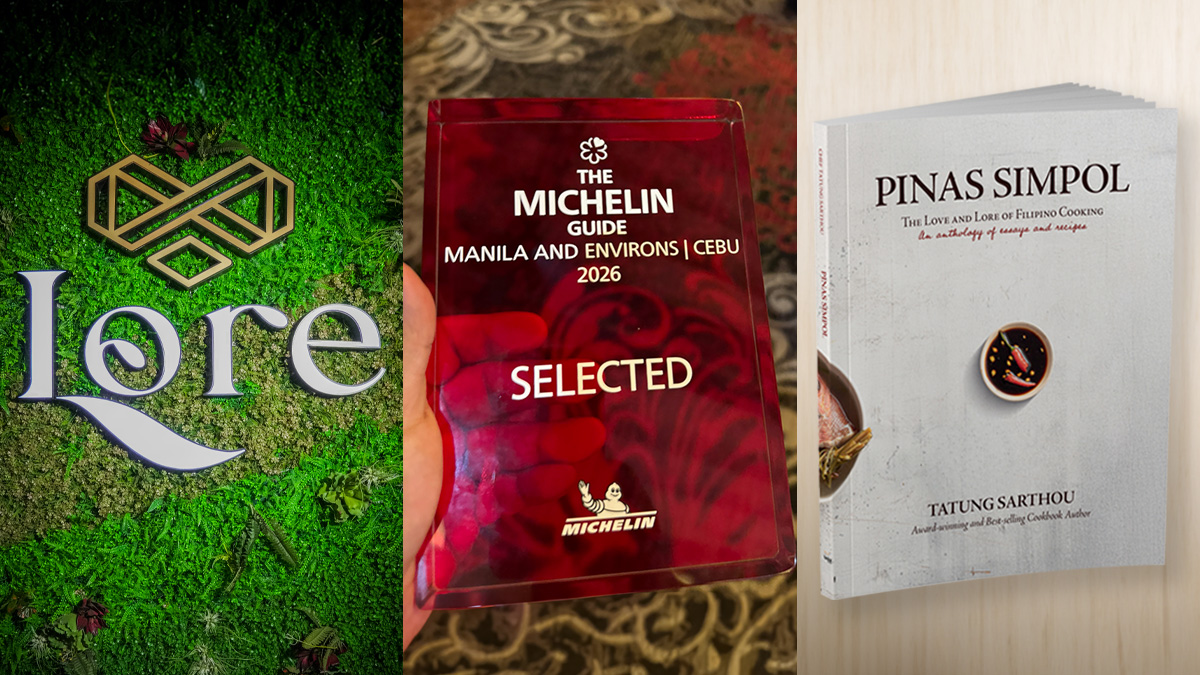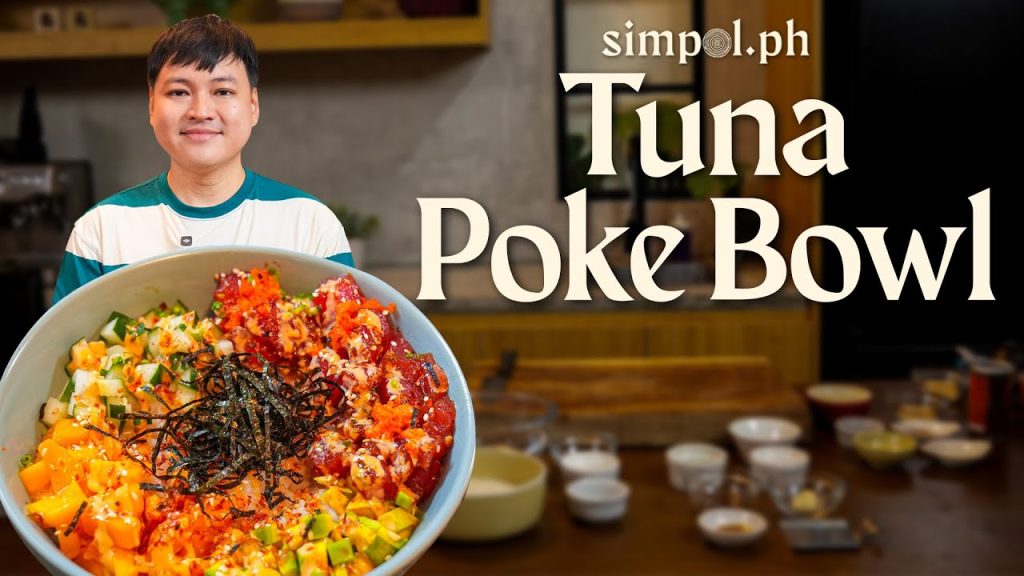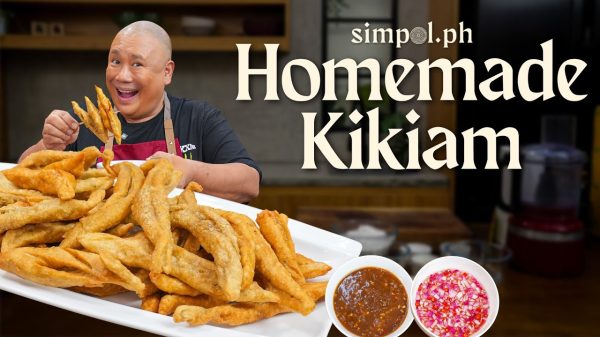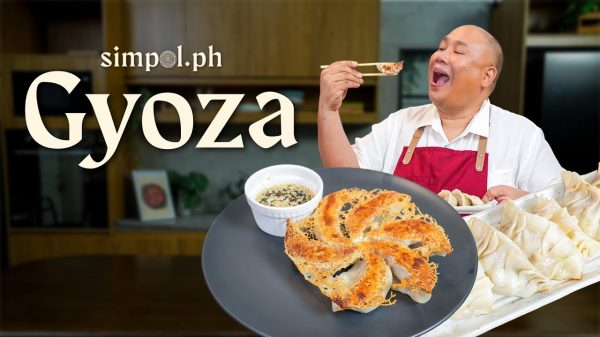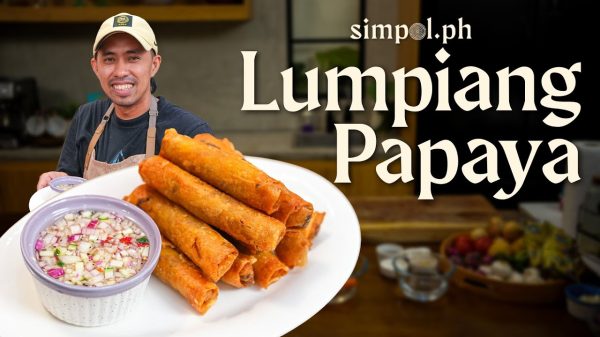Until Lore was announced as part of the Michelin-Selected restaurants in the Michelin Guide Philippines 2025, I had never given the idea much thought. Like many chefs, I admired the Guide from afar. When the recognition came, I felt pride—but also pause. Recognition invites both applause and attack. It teaches humility and reminds you that every acknowledgment carries a responsibility—to stand for something beyond yourself.
For me, this moment isn’t just personal. It affirms what I’ve worked toward all along: to make Filipino food visible and respected—not only for its flavors, but for its intelligence, dignity, and soul.
Where Gratitude Meets Responsibility
I’ll be honest: I didn’t expect to be Michelin Selected at all. For years, I’ve stood slightly outside the circles that define “fine dining.” My food has always been accessible, my voice grounded in the kitchens of home. That’s why this recognition means more than it seems. It tells me that sincerity and rootedness matter—and can hold their own on a global stage.
Still, every star and selection rests on invisible shoulders: the cooks, farmers, and artisans who feed families daily without applause. To forget them would be to forget what makes our food human. While recognition often gathers around a few names, it takes a whole community to move a cuisine forward.
Because in the end, true excellence isn’t elitist—it’s generous. We share excellence so more Filipinos may learn, grow, and be proud. We do not pursue excellence to rise above the many, but to lift the whole table higher.
Before the Buzzwords
I’ve been in this industry long enough to remember when “farm to table,” “modern Filipino,” and “degustation” weren’t yet buzzwords. Back then, cooking Filipino food wasn’t a concept—it was simply life. As a student, I read Doreen G. Fernandez and learned that food was not just taste but language and resistance. Those essays shaped how I cook and write today.
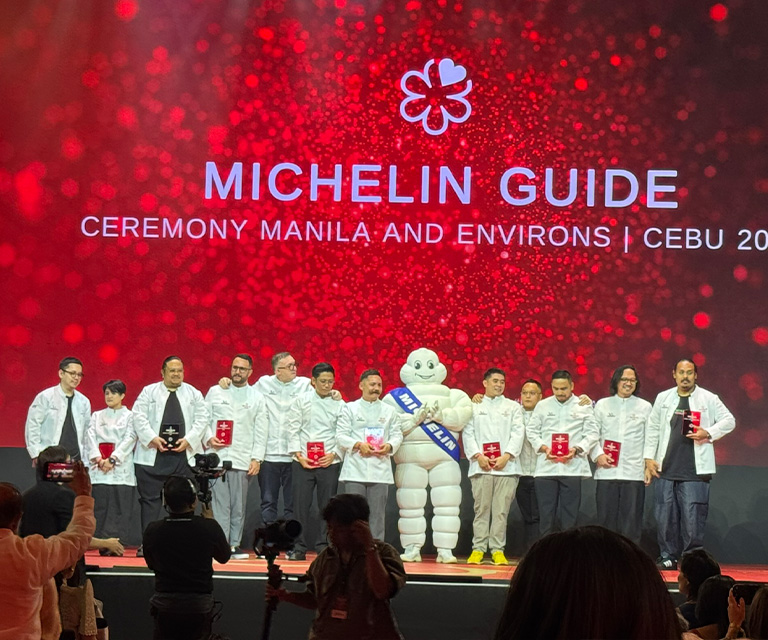
Standing on Many Shoulders
This recognition in the Michelin Guide Philippines 2025 is the result of decades of quiet effort. Many chefs before me pushed Filipino cuisine toward dignity and discovery. Their influence is everywhere: in the authors of Kulinarya—Glenda Barretto, Margarita Forés, Myrna Segismundo, Jessie Sincioco, Claude Tayag, and Conrad Calalang—and in mentors who proved that technique and heritage can coexist. To be part of that continuum is the real honor.
I also celebrate those who earned their stars this year—Helm, Toyo Eatery, Gallery by Chele, Hapag, Inatô, Asador Alfonso, Celera, and Linamnam. I admire them not only for their craft but because their work embodies the values I hold dear: rootedness, resilience, respect, and responsiveness. Their success uplifts us all. Every recognition for a Filipino chef strengthens the truth we’ve worked toward—that our cuisine, in all its depth and diversity, belongs on the world’s table.
The Storytellers Who Carried Us
We also owe much to storytellers—the writers, photographers, and creators who gave our cuisine voice. Through their work, they made our food visible to those who might never have tasted it. They built bridges between the kitchen and the world, often with the same love and care we put into the food itself.
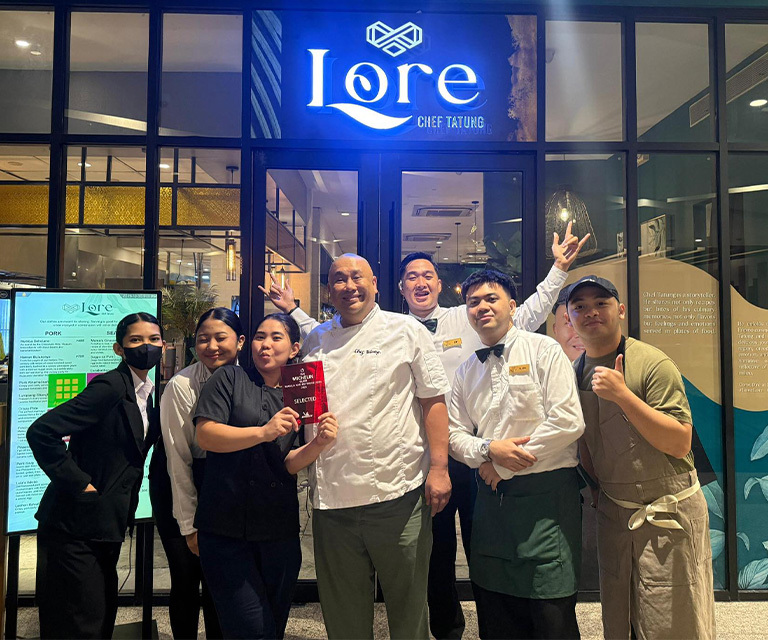
Our Own Language of Excellence
This is where Pinas Simpol comes in—my newest book and the heart of my life’s work. This year marks my tenth year as an author, and Pinas Simpol is the first of a trilogy that lays the foundation of the manifesto on which all my work now stands. What began as preserving recipes has grown into an attempt to codify Filipino cuisine—to give it structure, vocabulary, and academic rigor. The goal is not only to celebrate our food but to make it a teachable cuisine, one that can be understood and embraced even by those outside our culture.
The next two volumes will be released next year, beginning a new decade in my life and work. My true calling has become clearer: mentorship—to guide, share, and help others find meaning in the kitchen, not only in craft but in purpose.
Pinas Simpol defines Filipino food as a coherent body of knowledge anchored on the Four Legs of the Table: being Rooted in heritage, Resilient in adversity, Respectful of people and ingredients, and Responsive to the changing world. These principles remind us that mastery is measured not only by refinement but by relevance—by how we respond to the needs of our people and our times.
Lore isn’t a departure from simplicity but its refinement: kinilaw that teaches restraint, adobo that honors thrift, and soups that echo home. If Pinas Simpol is the grammar, Lore is the sentence—proof that excellence and empathy can share one plate.
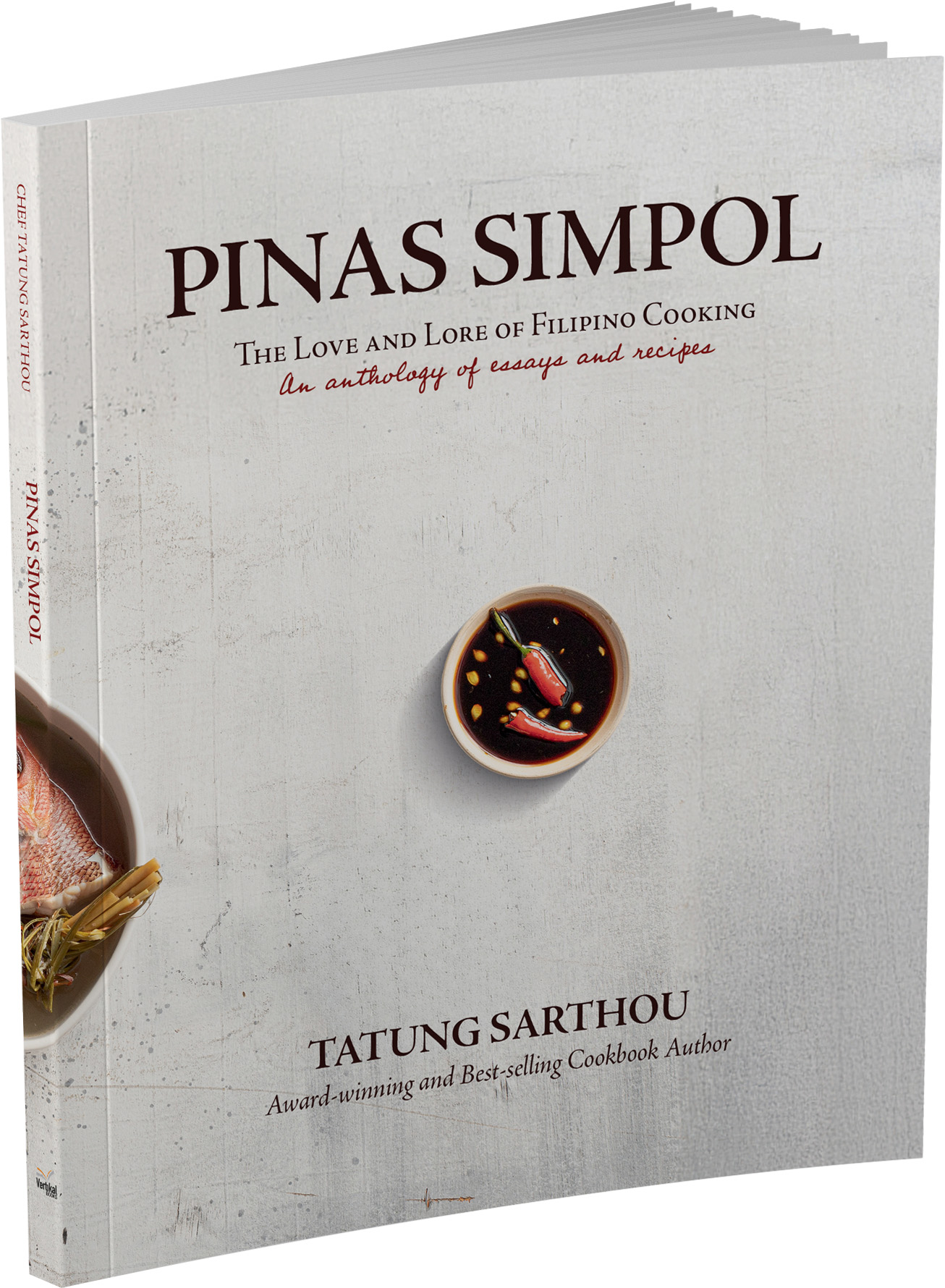
The Weight of a Star
Food guides like the Michelin Guide Philippines 2025 give us language for quality, but they can also distort it. The perfect meal isn’t the one that meets a checklist—it’s the one that remembers: the taste of a grandmother’s kitchen, a seaside afternoon, a life once simpler. That is the challenge for every Michelin-Selected chef—to keep memory alive beneath the shine.
From Molecular to Moral
Years ago, I read Gerri Korten’s Molecular Gastronomy and World Hunger. It proposed that science, guided by conscience, could feed the world—that gastronomy could be an act of preservation, not indulgence. We Filipinos practice our own kind of alchemy—not in laboratories, but in home kitchens. We stretch flavor, extend resources, and preserve sustenance. Our science is survival, our art is care. Where molecular gastronomy manipulates atoms, Pinas Simpol studies the moral molecule—the bond between cook, community, and sustenance. Both ask: how do we feed people with intelligence and dignity?
Between Substance and Reach
As a chef and cultural advocate, I aim to deepen the conversation about our food’s history and soul. But as a content creator, I also navigate a world ruled by algorithms. The work that nourishes doesn’t always trend, and what trends doesn’t always nourish. That’s why Simpol.ph exists—to bridge depth and accessibility, reflection and relevance, without losing our center.
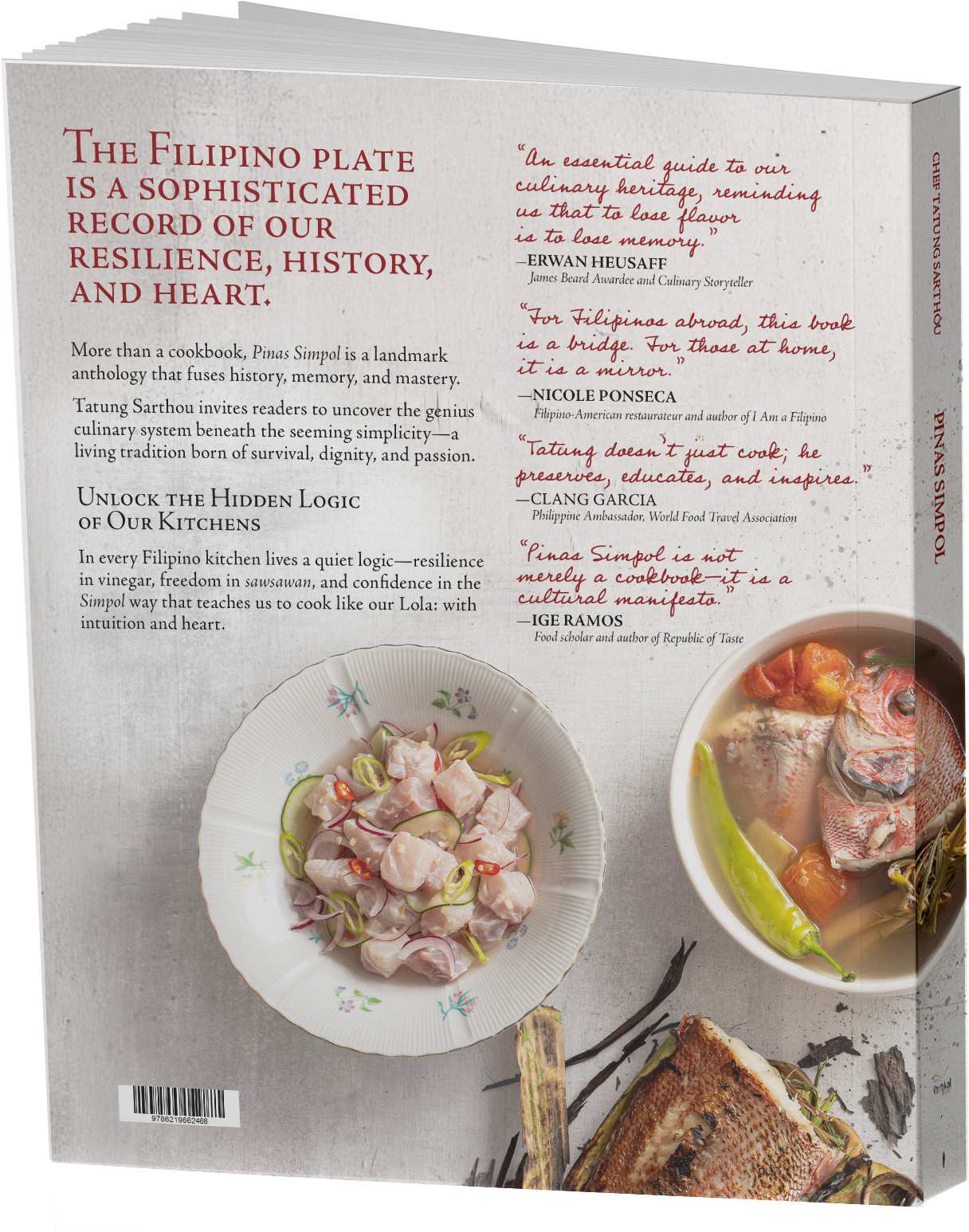
Bridging, Not Boasting
Critiques of global guides are valid, but this moment can open dialogue: how can global attention strengthen local systems? How can a spotlight reveal the unseen hands behind every meal? I see Lore’s Michelin Selection not as hierarchy, but as a bridge—between recognition and reality, between global prestige and local truth.
The Real Measure
At the end of the day, the real Michelin star is the shared table. It’s the sawsawan that sparks laughter, the leftover stew turned into comfort, the quiet work that keeps kitchens alive. So yes, I am proud. But pride, for me, isn’t applause—it’s the slow simmer of continuity. The fire stays low, the flavor deepens, and the journey goes on. We cook not to prove, but to preserve. Not to impress, but to nourish. That is the heart of Pinas Simpol. That is the story of Lore by Chef Tatung, Michelin-Selected in the Michelin Guide Philippines 2025.


